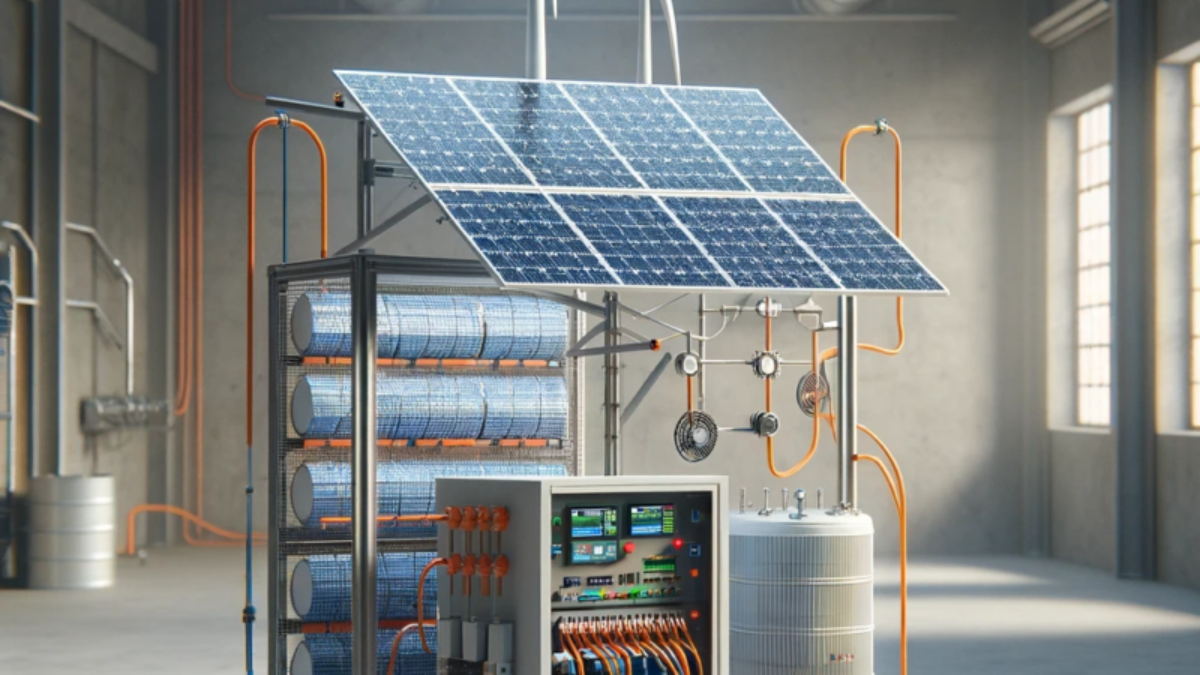Hybrid power generation system is leading the way in the rapid evolution of the energy sector. These integrated systems, which amalgamate several techniques of power generation, present a prospective resolution to effectively fulfill the escalating global energy requirement in a sustainable manner. This blog post will explore the several categories of hybrid power systems, analyzing their benefits and drawbacks, practical uses, restrictions, and the potential future advancements of this groundbreaking technology.
Types of Hybrid Power Generation Systems:
- Solar-Wind Hybrid Systems: Combining solar panels with wind turbines, these systems harness energy from the sun and wind, offering a more constant and reliable power source.
- Wind-Hydro Hybrid Systems: This setup integrates wind turbines with hydroelectric power. The fluctuating power from wind is balanced by the more stable hydroelectric generation.
- Solar-Hydro Hybrid Systems: Merging solar power with hydroelectric energy, this system provides a consistent energy output, leveraging the sun’s energy during the day and hydroelectric power as a backup.
- Solar-Diesel Hybrid Systems: Common in remote areas, these systems combine solar panels with diesel generators to reduce fuel consumption and increase efficiency.
Table of Contents
Advantages of Hybrid Power Generation Systems:
- Enhanced Reliability: By combining multiple energy sources, these systems offer more consistent power than single-source systems.
- Environmental Benefits: Most hybrid systems integrate renewable energy sources, leading to reduced greenhouse gas emissions.
- Cost-Effective: Long-term cost savings are achieved through efficient use of renewable resources and reduced dependence on expensive fuels.

Disadvantages and Limitations:
- High Initial Investment: Setting up hybrid power systems can be costly due to the complexity and technology involved.
- Technical Challenges: Integrating different technologies requires sophisticated control systems and can pose maintenance challenges.
- Geographical Limitations: The efficiency of these systems often depends on the location and availability of renewable resources like sunlight and wind.
Applications of Hybrid Power Systems:
- Remote and Rural Areas: These systems are ideal for providing reliable power in off-grid locations.
- Urban Energy Solutions: In cities, hybrid systems can supplement the grid, especially during peak demand times.
- Industrial Use: Industries with high energy demands can benefit from the consistent and sustainable energy supply of hybrid systems.
Future Scope:
The future of hybrid power generation systems is bright, with ongoing advancements in technology and increasing focus on sustainability. Emerging trends include the integration of battery storage systems to further enhance reliability and the use of smart grids for optimized energy distribution. As renewable energy technologies become more cost-effective, hybrid systems are likely to play a pivotal role in global energy strategies.
Conclusion:
Hybrid power generation systems represent a significant step towards a more sustainable and reliable energy future. While they come with certain challenges, the benefits they offer in terms of environmental impact and energy efficiency make them a vital component of modern energy solutions. As technology advances, we can expect these systems to become more prevalent and efficient, paving the way for a greener, more sustainable world.

Add a Comment